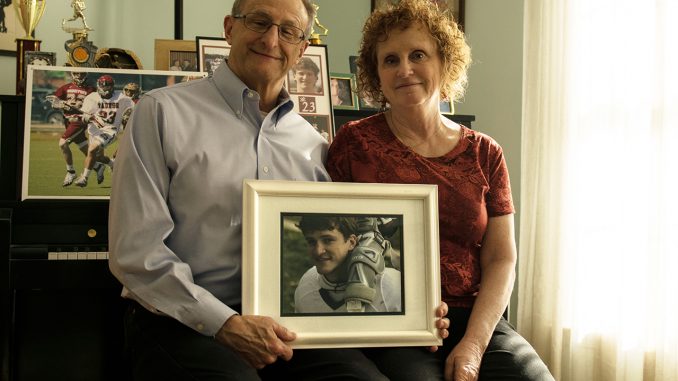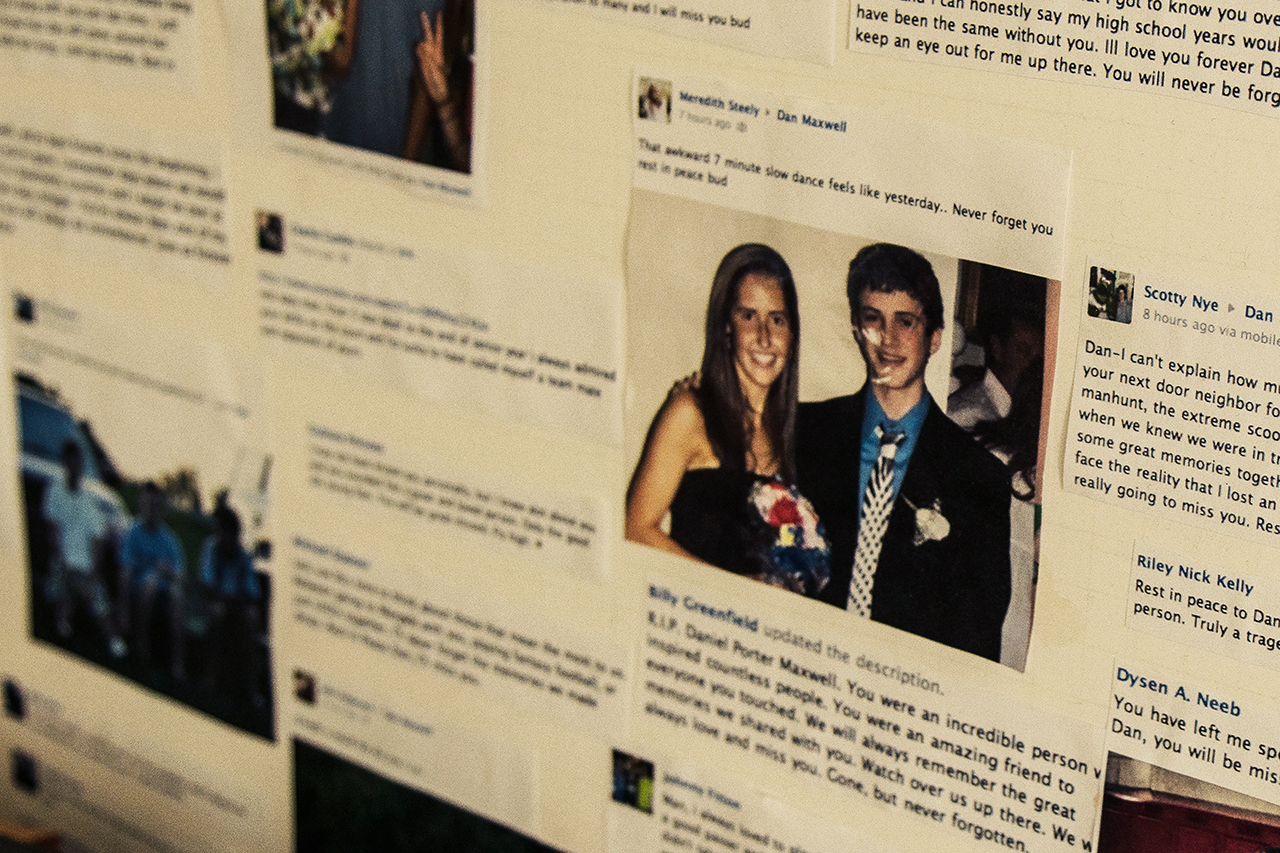
Dan Maxwell seemed to have everything going for him. He was a three-sport athlete, playing lacrosse, football and basketball, and was a member of the National Honors Society. But simultaneously, he struggled with his mental health, and he felt like he couldn’t talk about it with his peers.
“The extent that talking could have made his life easier and he could still be here today, would make our lives easier,” said Lee Maxwell, Dan’s father. “No talking happened, and so that is something we want to change.”
In 2013, Laurie Burstein-Maxwell and Lee Maxwell lost their son Dan to suicide. He was 18 years old and had just graduated from Radnor High School in Wayne, Pennsylvania.
Following Dan’s death, the Maxwells were open about his mental health struggles. They wanted to turn their tragedy into hope by helping other young people have safe spaces to talk about their emotional pain.
“Dan did not have that audience at Radnor High School,” his father said. “He didn’t feel like he could talk to his athlete buddies. Even we, as adults because of the stigma, didn’t feel comfortable with sharing our issue with our friends.”
The family founded the DMAX Foundation, which they named after Dan, in September 2013, just a few months after he died. The foundation works to eliminate the stigma surrounding mental health issues and create spaces where young people can talk about the emotional pain they face.

To organize these discussions, the foundation established several student-led organizations at Penn State University, Drexel University, Elon University and, most recently, at Temple earlier this semester.
“It’s to create an environment so students can have honest, everyday conversations about mental health and…help each other,” said Burstein-Maxwell, a 1981 Ph.D. psychology alumna. “So the clubs are about talking about topics related to mental health on a personal level.”
In Fall 2017, Tuttleman Counseling Services relocated to a larger space at 1700 N. Broad Street. Since then, wait times to see a specialist have decreased, but some students are unable to receive services during walk-in hours once the office reaches capacity at 35 students, The Temple News reported in October 2017.
Heather DeSalvo, a sophomore neuroscience major and the vice president of Temple’s DMAX club, said she tried to make an appointment at Tuttleman once and was told she had to wait a month.
“That’s a big problem especially for students who are just trying to deal with this stuff when they have other stuff to do,” DeSalvo said.
Before establishing a college club, the DMAX Foundation reaches out to the university’s counseling center and then the student affairs department.
“The DMAX Club at Temple’s mission is an important one and I’m sure they’ll benefit the Temple community for years to come,” Dean of Students Stephanie Ives wrote in an email.

The foundation uses the counseling center to train student leaders on how to talk, listen and handle emergencies with members, Burstein-Maxwell said. They need to make sure that the student leaders aren’t trying to act as therapists, but instead are holding a conversation for the students. The club leaders are also trained to recognize when they cannot handle a situation and the student should talk to a counselor.
DeSalvo helped found Temple’s chapter with sophomore engineering major Michael Nghe, who is now the club’s president. The two got involved when the Maxwells attended a Health and Wellness Fair on Main Campus in October 2017.
In high school, DeSalvo was involved with mental wellness projects. She hosted an anti-stress paint event her senior year and blogged for a suicide prevention hotline website. Once at Temple, she said she wanted to continue her efforts by helping found the DMAX chapter.
“With the number of students going to college and the workplace, stress is a big problem, and that’s probably the main source of a lot of mental health problems,” DeSalvo said. “It’s something that affects everybody.”
The DMAX Club at Temple plans to host events next semester that promote mental wellness and help normalize conversations about mental health.
The club will host its next meeting on April 30 at 6 p.m. in Room 223 of the Student Center. The group also plans to have a table at Temple Fest, an event hosted during Welcome Week each August to introduce students to clubs on Main Campus.
“A lot of the time people feel like they can’t talk to anyone…when in reality all you need is to talk to somebody about it and have somebody listening,” DeSalvo said. “And that’s what we want to do.”
The Maxwells hope through the expansion of the foundation and college chapters that people will be able to talk more comfortably about mental health. They also hope that the DMAX Foundation can become a national organization.
“We felt that the things that [Dan] suffered…in terms of silence when he was here and not being able to talk to people is something we could do something about,” his father said. “The world needs to know that you can be dealing with some issues and you can be high-functioning, nice people.”


Be the first to comment